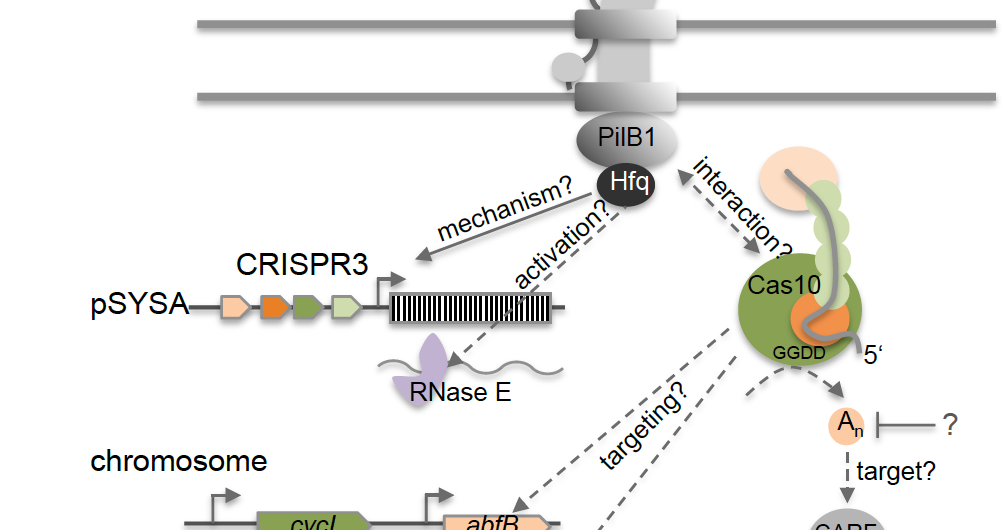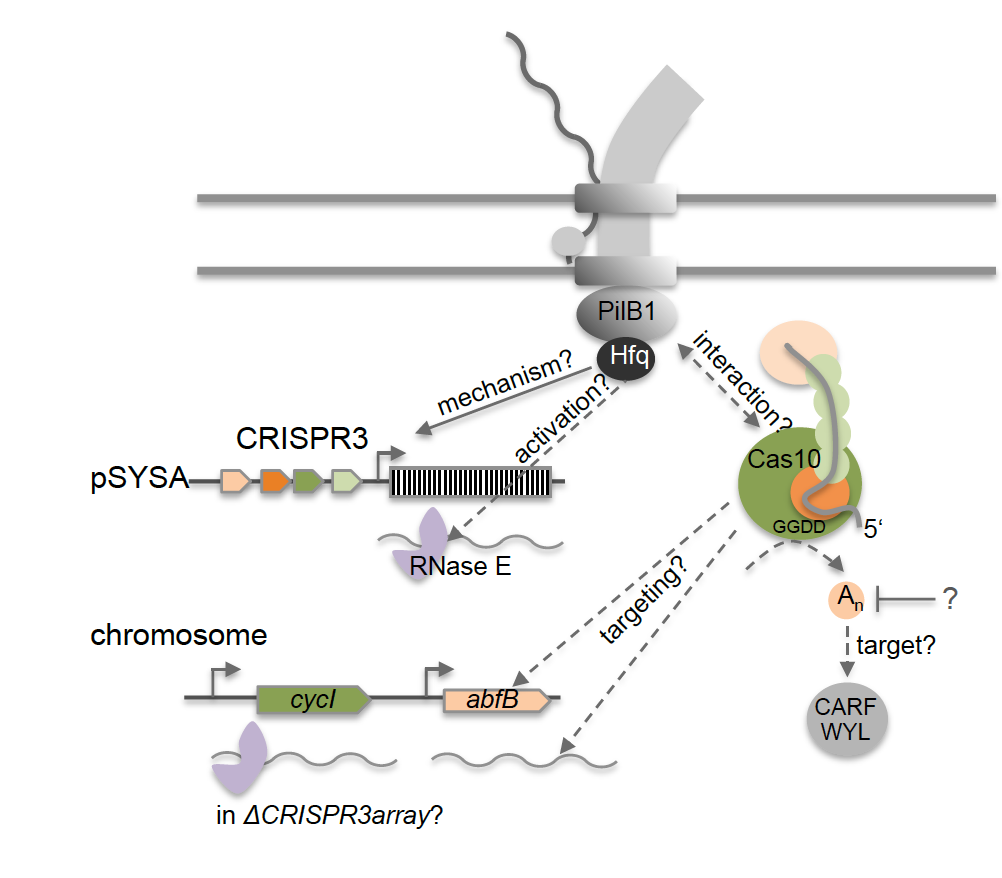

Cyanobacteria convert fixed carbon dioxide into different useable carbon-based products what makes them very attractive for biotechnology. However, they can be infected by cyanophages in their natural habitat as well as in production facilities. Similar to many other bacteria and Archaea they have developed defence systems to protect themselves against invasion by foreign nucleic acids.
In this project, we will investigate the interconnection between the CRISPR-based defence system and other cellular functions by testing CRISPR-dependent gene regulation, the role of ribonucleases in this process and by localization and protein-protein interaction studies of different CRISPR associated proteins. In addition, we will test the hypothesis that the cyanobacterial CRISPR-Cas III-B system is able to synthesize second messenger nucleotides and will analyse the mechanism and physiological meaning of such a putative signalling system.
Funding:
- SPP 2141: “Natural functions of CRISPR-Cas systems in cyanobacteria”
Key publications:
Behler J, Sharma K, Reimann V, Wilde A, Urlaub H, Hess WR. (2018) The host-encoded RNase E endonuclease as the crRNA maturation enzyme in a CRISPR-Cas subtype III-Bv system. Nat. Microbiol. 3, 367-377